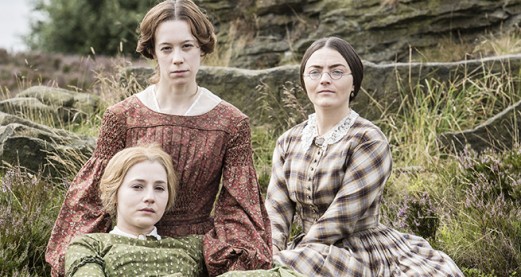Explore the resources
-
Women transforming classical music
Learn more to access more details of Women transforming classical musicWomen transforming classical music is a free course aimed at helping individual performers, ensembles and organisations within the classical music industry to diversify their repertoire by including more works by women composers. The 6-week course considers the male-dominated nature of the contemporary classical music industry and how to ...

-
The greatest composers you’ve never heard of
Read now to access more details of The greatest composers you’ve never heard ofWhen you think of classical music, which names come to mind? Beethoven? Mozart? Bach? But how many women composers can you name?

-
Supporting women musicians in the workplace
Read now to access more details of Supporting women musicians in the workplaceThis article explores the many issues facing women in the music industry, and what improvements can be made to help those facing these challenges.

-
Janis Joplin and the Sexual Revolution
Learn more to access more details of Janis Joplin and the Sexual RevolutionThis free course, Janis Joplin and the Sexual Revolution, will introduce you to issues around the sexual revolution and how this, and other contemporary social revolutions of the 1960s, impacted upon American rock musician Janis Joplin (1943-1970). You will investigate the extent to which the contemporary sexual revolution brought about ...

-
Agatha Christie and the golden age of detective fiction
Learn more to access more details of Agatha Christie and the golden age of detective fictionIn this free course you’ll examine one of Agatha Christie’s most significant works, The Murder of Roger Ackroyd (1926), and explore the evolution of British detective fiction in relation to Christie’s background, literary modernism and the development of middlebrow fiction.

-
Exploring Virginia Woolf’s Between the Acts
Learn more to access more details of Exploring Virginia Woolf’s Between the ActsThis free course introduces Virginia Woolf’s last novel, Between the Acts (1941), with the aim of understanding how she writes about time, memory, and ideas about identity. It also considers why Woolf’s fiction is often considered difficult. Selected extracts from her essays on writing help to clarify some of these perceived difficulties, ...

-
Simone de Beauvoir and the feminist revolution
Learn more to access more details of Simone de Beauvoir and the feminist revolutionIn this free course you will study the ideas of philosopher Simone de Beauvoir (1908-1986). In doing so you will also briefly study the philosophy of Beauvoir’s lifelong partner, philosopher Jean-Paul Sartre. The type of philosophy that links them is called ‘existentialism’. Beauvoir and Sartre are the foremost philosophers of French ...

-
Mary Shelley: the expert view
Read now to access more details of Mary Shelley: the expert viewStephanie Forward outlines the life and legacy of the author of 'Frankenstein', Mary Shelley.

-
Professor Sara Haslam on the Brontë sisters’ work
Read now to access more details of Professor Sara Haslam on the Brontë sisters’ workProf. Sara Haslam was The Open University's academic consultant on OU/BBC drama ‘To Walk Invisible’. Here she discusses what makes the Brontës’ work so fantastic.

-
Quiz: Which Brontë sister wrote it?
Take part now to access more details of Quiz: Which Brontë sister wrote it?Charlotte, Emily and Anne Brontë had very different writing styles but can you tell their writing apart from the other?

-
Sylvia Plath and the linguistics of depression
Read now to access more details of Sylvia Plath and the linguistics of depressionCould the type of language people use reveal something about their state of mind? A close reading of Sylvia Plath's journals suggest it might be possible.

-
Why do Taylor Swift & Sylvia Plath have more in common than you might think?
Watch now to access more details of Why do Taylor Swift & Sylvia Plath have more in common than you might think?Eleanor Spencer-Regan explores the common thread between Look What You Made Me Do and Lady Lazarus

-
The Unsung Women Who Shaped the Blues
Read now to access more details of The Unsung Women Who Shaped the BluesBlues is a musical genre often associated with male pioneers. However, women were also a huge part of this development. This article shines a light on three women who helped shape the blues: Mamie Smith, Ma Rainey and Bessie Smith.

-
The People on the Notes: Jane Austen
Read now to access more details of The People on the Notes: Jane Austen2017 marked the bicentenary of Jane Austen's death and to commemorate this she was then featured on the £10 note. Find out whether the note truly represent's Austen's life and work...

-
Helen Cammock and the art of storytelling
Watch now to access more details of Helen Cammock and the art of storytellingThe artist Helen Cammock discusses how her art has transformed from using herself as a conduit for conversations about race to ‘the collective’ in this film. In the article below Philip Seargeant explores how art can operate as a form of storytelling, different to political or media storytelling.


Rate and Review
Rate this article
Review this article
Log into OpenLearn to leave reviews and join in the conversation.
Article reviews